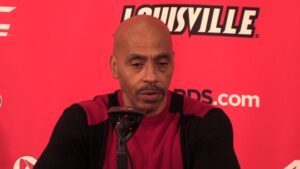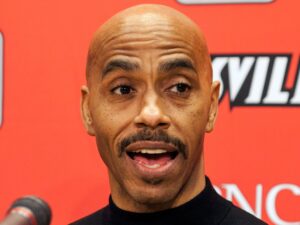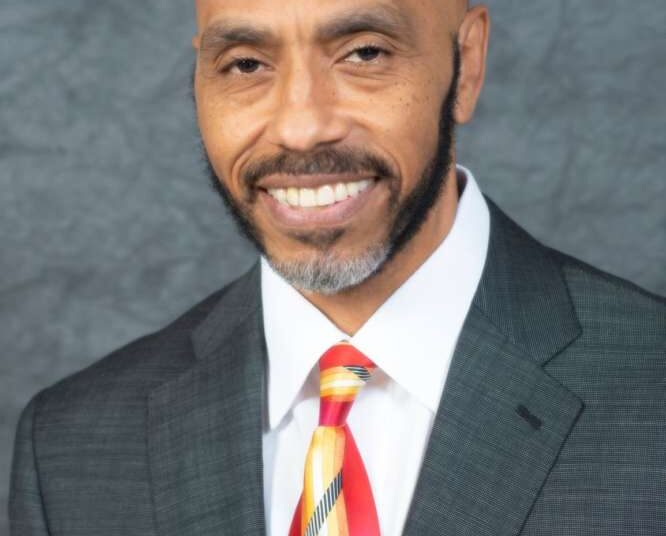The Professional Basketball Legend Darrell Griffith Announced Why He Preferred Louisville Cardinals Over Kentucky, Texas A&M, Indiana, and Pitt: A Personal Revelation

Darrell Griffith, one of the most electrifying players in the history of college basketball and a legend of the professional game, recently opened up about a decision that shaped not only his life but also the history of an entire basketball program: choosing to play for the University of Louisville over other powerhouse programs such as Kentucky, Texas A&M, Indiana, and Pittsburgh. For fans of the sport, this revelation offers a rare glimpse into the mindset of a young athlete on the brink of greatness, and the deep values that influenced a decision that continues to echo through the halls of NCAA history.
Griffith, known to fans as “Dr. Dunkenstein” for his high-flying, acrobatic dunks, could have gone anywhere. As a standout high school player in Louisville, Kentucky, he was one of the most heavily recruited athletes in the country in the late 1970s. Blue-blood programs like Kentucky and Indiana courted him aggressively. Texas A&M offered the allure of big money prospects and a growing national profile. Pitt promised him a starring role in a rising Big East power. Yet Griffith chose to stay home — to wear the red and black of the Louisville Cardinals.
Why?
In his own words, “It came down to more than just basketball. Louisville was family. It was community. It was legacy.”
Griffith has long emphasized the importance of loyalty, identity, and giving back to the community that raised him. Unlike many athletes who see college as a stepping stone to the NBA, Griffith saw it as a defining chapter in his story — one that needed to reflect who he was, and where he came from. By choosing Louisville, he wasn’t just making a personal decision; he was making a statement about pride in one’s roots.
Despite the glitz surrounding other programs, Griffith was drawn to Louisville’s sense of purpose and vision. Head Coach Denny Crum, who had learned under John Wooden at UCLA, offered more than just a spot on the team — he offered a mentorship that resonated with Griffith’s values. “Coach Crum didn’t just promise me shots or playing time,” Griffith explained. “He talked about growth, discipline, winning the right way. That stuck with me.”

The contrast with Kentucky, in particular, was stark. As an in-state rival with a storied history, the Wildcats had prestige, titles, and media attention. But Griffith noted a cultural divide that made him hesitate. “At that time, Kentucky wasn’t known for developing Black players into stars the way Louisville was starting to. There was a real question of representation, and I didn’t want to be a token. I wanted to be part of a team that reflected my city and my generation.”
Texas A&M and Pitt, while attractive in their own right, lacked the emotional pull. “They were great programs,” Griffith acknowledged, “but I didn’t feel the same connection. They weren’t home. They didn’t carry the weight of my neighborhood, my school, my people rooting for me in every play.”
At Louisville, Griffith not only thrived — he rewrote history. In 1980, he led the Cardinals to their first-ever NCAA Championship, defeating UCLA in the final and earning Most Outstanding Player honors. His decision to stay home and play for Louisville turned out to be one of the most transformative moves in college basketball history. The title put the program on the map nationally, opened doors for future recruits, and solidified Louisville as a basketball powerhouse.
Even after a successful professional career with the Utah Jazz, where he averaged over 20 points per game in multiple seasons and won the NBA Rookie of the Year award, Griffith has remained loyal to his roots. Today, he remains a revered figure in Louisville, active in youth development and mentoring young athletes. The university even retired his jersey and named the Denny Crum Practice Facility’s court in his honor.
“I have no regrets,” Griffith said. “I could’ve chased the bright lights elsewhere, but by staying home, I made a difference where it mattered most. That’s something no trophy can replace.”
In a modern landscape where college athletes often transfer in search of the best deal or opportunity, Darrell Griffith’s story is a timeless reminder that sometimes the best decision is the one closest to home — guided by purpose, loyalty, and heart.













